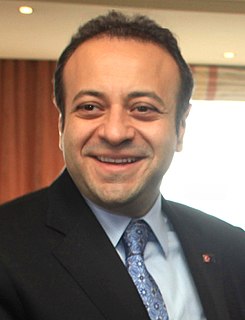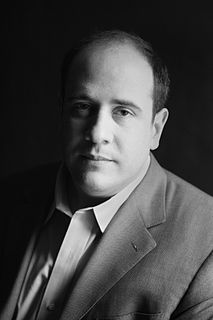A Quote by Deeyah Khan
While religious fundamentalism is treated as a serious social problem because it has the potential to lead to rare but devastating acts of terrorism against the public, with a variety of programmes and interventions to address it, everyday violence against women occurring in the name of fundamentalism has long been neglected.
Related Quotes
The United Nations defines violence against women as any act of gender-based violence that results in, or is likely to result in, physical, sexual or mental harm or suffering to women, including threats of such acts, coercion or arbitrary deprivation of liberty, whether occurring in public or in private life.
Turkey is united against terror. People from left and right, men, women, children, different ethnicities, different religious groups are all united, and they're all condemning terrorism. We have been fighting against PKK terrorism. We're fighting against Daesh, ISIS. We're fighting against FETO. We're fighting against the HKPC. So we know how hard dealing with terrorism is.
I believe in an America that is officially neither Catholic, Protestant nor Jewish; where no public official either requests or accepts instructions on public policy from the Pope, the National Council of Churches or any other ecclesiastical source; where no religious body seeks to impose its will directly or indirectly upon the general populace or the public acts of its officials; and where religious liberty is so indivisible that an act against one church is treated as an act against all.
And in the wake of Trump's elections, there have been reports across the country of intimidation, harassment and violence against those very groups. So if Trump is serious about unifying the country, if this is a thing he wants to do, then I think he needs to immediately speak against these acts of intimidation, harassment and violence that are happening to some degree in the name of the campaign that he ran.
Most codes extend their definitions of treason to acts not really against one's country. They do not distinguish between acts against the government, and acts against the oppressions of the government. The latter are virtues, yet have furnished more victims to the executioner than the former. Real treasons are rare; oppressions frequent. The unsuccessful strugglers against tyranny have been the chief martyrs of treason laws in all countries.
Given the racist and patriarchal patterns of the state, it is difficult to envision the state as the holder of solutions to the problem of violence against women of color. However, as the anti-violence movement has been institutionalized and professionalized, the state plays an increasingly dominant role in how we conceptualize and create strategies to minimize violence against women.
I have no religious belief myself, but I don't think we should fight about it. In particular, I think that we should not rubbish moderate religious leaders like the Archbishop of Canterbury because I think we all agree that extreme fundamentalism is a threat, and we need all the allies we can muster against it.
In a world torn by every kind of fundamentalism - religious, ethnic, nationalist and tribal - we must grant first place to economic fundamentalism, with its religious conviction that the market, left to its own devices, is capable of resolving all our problems. This faith has its own ayatollahs. Its church is neo-liberalism; its creed is profit; its prayers are for monopolies.
I don't find any difference between Islam and Islamic fundamentalists. I believe religion is the root, and from the root fundamentalism grows as a poisonous stem. If we remove fundamentalism and keep religion, then one day or another fundamentalism will grow again. I need to say that because some liberals always defend Islam and blame fundamentalists for creating problems. But Islam itself oppresses women. Islam itself doesn't permit democracy and it violates human rights.





































